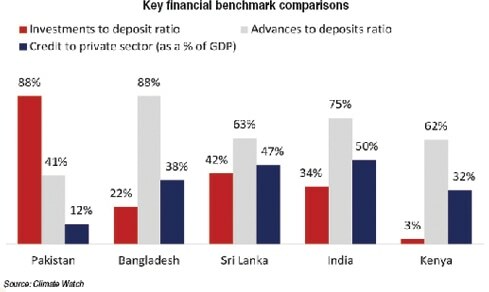KARACHI, June 4: The local pharmaceutical industry has sought 10 per cent increase in drug prices, cut in customs duty on imports to five per cent and removal of input sales tax on packaging.
The representatives of the industry in their briefing to the press talked of cost pressures in a sector that experienced vast expansion and recorded enviable performance. The track record of local drug industry indicates sound business scope in a country where a huge percentage of population does not have access to health facilities because of its high cost along with other structural causes.
The government has frozen the drug prices for the last seven years, the input cost over this period, according to the industry, has gone up by 30-60 per cent. “We are surviving on rising sales of medicines,” members of the Pakistan Pharmaceutical Manufacturers Association (PPMA) told newsmen at a local hotel on Wednesday.
They said that the industry had been surviving on profit margin ranging from five to 10 per cent, and to remain profitable it needs relief in the shape of cut in duties and sales tax or increase in medicines price.
Out of the total 667 pharmaceutical companies, 405 are registered units including 31 multinational companies. The size of pharmaceutical market size is Rs89 billion ($1.32 billion). Director and indirect employment in the local industry stands at 162,000 and one million people respectively.
PPMA Executive Committee Member Khalid Mahmood said there was cost pressure on the local industry as it had to rely on imported raw materials for medicine manufacturing, while India produces 90 per cent of all raw materials.
He said that the input cost in Pakistan was the highest in the world owing to high customs duties on raw materials, logistic cost, salaries of technical and skilled staffs, rising utility tariffs, etc. He said that the rupee depreciated 22pc against the dollar in the last five year making import of raw material costlier.
Rejecting the general impression that Indian medicines were much cheaper than local medicines, he said that the prices of locally-produced medicines were 40-500 per cent lower than India.
He said the country’s pharmaceutical exports were $101 million in 2006-07 and growing at an annual rate of 22 per cent. In 2005-06 exports were $83 million. Export target for FY2008 had been projected at $125 million.
On the other side of the border, Indian pharmaceutical exports stand at $6 billion which are growing at a pace of 20 per cent, he added.
Giving reasons to low exports, he said the country’s spending on health as percentage of GDP was only 0.8 per cent as compared 5-6 per cent in Sri Lanka, 3-4 per cent in Bangladesh, 6-7 per cent in Algeria, 5-7 per cent in Mexico, 6-9 per cent in Iran and 10-15 per cent in Costa Rica and Cuba.
He said that getting accreditation from the World Health Organization (WHO) cost Rs1-2 billion to a local firm besides $2-3 million annually on training and for international documentation, validation and certification.
Mr Khalid said that upgraded plants and manufacturing facilities were a key to enter regulated pharmaceutical market. In Pakistan, FDA-WHO approved facilities are non-existent, he regretted.
Accredited labs/clinical research organizations (CROs) play an important role in development of pharma industry. In Pakistan, there are no accredited references independent labs for drug testing and evaluation. While in India there are about 58 CROs which are approved by renowned international regulatory authorities. China is home to more than 300 CROs of all sizes.













































Dear visitor, the comments section is undergoing an overhaul and will return soon.